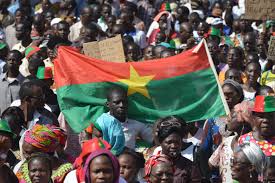L’idea di organizzare un simposio deriva dalla sentita necessità di accendere i riflettori sui percorsi e le opere realizzate dalle artiste la cui pratica è stata offuscata per decenni e i cui contributi apportati alle prime narrazioni postcoloniali non hanno ancora trovato il giusto e adeguato riconoscimento. Animati dal desiderio di soddisfare le proprie curiosità sul tema, i ricercatori cercheranno di fornire esaurienti risposte a una serie di quesiti chiave, indagando sulle identità e le storie delle artiste che furono attive negli anni Sessanta, svelandone le complessità attraverso l’analisi dei rispettivi processi creativi ed esplorando, altresì, il modo attraverso il quale esse si orientarono all’interno del panorama artistico africano, in quella particolare fase storica interessato da radicali trasformazioni di natura sociale e politica, con i conseguenti relativi stimoli recepiti dalle artiste africane sul piano tematico e quindi trasposte nelle loro attività.
***
In partnership with the Njabala Foundation, Aware: Archives of Women Artists, Research & Exhibitions is organizing a symposium in Kampala, Uganda, on March 8 and 9, 2024. “Tracing a Decade: Women Artists of the 1960s in Africa” focuses on the often-overlooked contributions of women artists during this pivotal decade across the African continent.
SYMPOSIUM IN KAMPALA ON MARCH 8 AND 9, 2024
Tracing a Decade: Women Artists of the 1960s in Africa focuses on the often-overlooked contributions of women artists during this pivotal decade across the African continent. The symposium illuminates the paths and works of women artists whose practice has been blurred for decades and whose contributions to early postcolonial narratives are yet to be recognized. Guided by a set of key questions, the researchers investigate the identities and stories of women artists from the 1960s, uncover the intricacies of their creative processes, and explore how they navigated the artistic landscape of the changing Africa. Additionally, the symposium examines the thematic concerns and reception of women artists’ work during a time of socio-political transformation.
THE 1960s IN AFRICA
The 1960s in Africa were a transformational period defined by the triumphs of independence, the complexities of nation-building, and the aspirations for a brighter future. As the continent underwent radical shifts, it laid the groundwork for subsequent decades, shaping the diverse and dynamic Africa we know today. The 1960s served as a crucible for the shaping of postcolonial narratives through the founding and development of several groundbreaking cultural initiatives, including Transition Magazine, founded in Uganda in 1961; the 1962 Conference of African Writers of English Expression, held at Makerere University College in Kampala; the Black Orpheus journal based in Nigeria; and the World Festival of Negro Arts held in Dakar in 1966. Together, these platforms contributed significantly to the intellectual and cultural renaissance of Africa in the 1960s, shaping narratives and fostering a sense of solidarity among black artists and thinkers.
A TRANSFORMATIVE DECADE
Drawing inspiration from Chika Okeke-Agulu’s insights into the evolution of modern African art history in “The Challenge of the Modern”, the symposium acknowledges the broader context of the 1960s, emphasizing the need to fill a critical gap in the recognition of women artists during this transformative decade. By tracing their paths, understanding their methodologies, and exploring the reception of their work, the symposium aspires to contribute to a more comprehensive and inclusive narrative of African art history. It aligns with Okeke-Agulu’s call for a deeper examination of overlooked precursors, specifically focusing on the women who played integral roles in shaping the artistic landscapes of Africa during the 1960s.
ABOUT AWARE
Aware: Archives of Women Artists, Research & Exhibitions is a non-profit organisation, co-founded by art historian Camille Morineau in 2014, which works to make nineteenth and twentieth-century women artists visible by producing and posting free, fully bilingual (French/ English) content about their work on its website. In 10 years, the Aware website has become a unique online resource, aimed at professionals in the art world as well as the general public. This resource currently features over 1100 richly illustrated biographical texts and has over 100,000 visits per month.
DIVERSITY OF VOICES
Aware represents a diversity of voices, with texts written by over 500 researchers, curators, feminist art historians, art critics and activists from all over the world. In order to widely disseminate research on women artists, Aware also organises symposiums, round tables and seminars in partnership with institutions, universities, museums and other independent structures internationally, and edits its own publications. Aware is located in the Villa Vassilieff in the 15th arrondissement of Paris, where the artist Marie Vassilieff had her studio in the 1910s.
VILLA VASSILIEFF: AN HIGLY SYMBOLIC SPACE
In this highly symbolic space, reimagined by designer matali crasset, Aware has set up a research and documentation centre entirely dedicated to women artists and feminist art. The association also hosts residencies, events, meetings and workshops for schools. Since moving to the Villa Vassilieff, Aware has developed a specific programme based on a dual identity: local, by becoming a forum for debate in Paris, and international, through its research programmes and a vast network of authors around the world. With this dual identity, a team made up of women, an associative space and a website offering free, high-quality content, Aware has become a benchmark recognised by professionals and institutions and a place open to everyone that encourages research, exchange, and discussion.
INFO
Confirmed speakers: Dorothy Akpene Amenuke, N’Goné Fall, Merve Fejzula, Gladys Kalichini, Liz Kobusinge, Nadira Laggoune, Portia Malatjie, Karen Milbourne, Lerato Shadi. For the full programme, please visit the Njabala Foundation website. Tracing a Decade, Women Artists of the 1960s in Africa: March 8-9, 2024, Makerere University (CTF building) 7062 University Rd, Kampala, Uganda.








